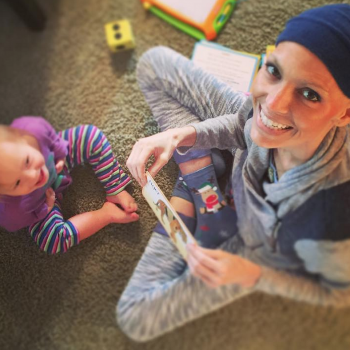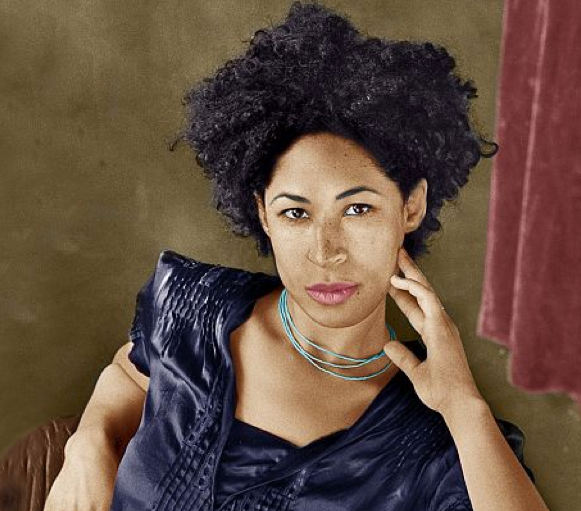
Steve Carell is a “fommy.”
The actor, who stars in Alexander and the Terrible, Horrible, No Good, Very Bad Day, says he’s a father — like his character — who also functions as a mother. What does that mean? Well, in the movie, the temporarily unemployed dad watches the kids while his wife works at a publishing house. At a “Mommy and Me” yoga class, one of the ladies noted he was a “father/mommy,” or “fommy.”
He didn’t recoil.
In fact, he embraced the title, rejoiced his child said it as his first word, and the actor personally claimed the title for himself.
Heather Havrilesky, a writer for the New York Times, doesn’t embrace “mommy” quite as heartily. In this weekend’s Sunday Review, she takes umbrage at the fact that people sometimes refer to her as “mom.” When, for example, she was sitting at her kid’s soccer practice “contemplating the drift of gray clouds in the distance,” the coach interrupted her reverie by saying, “Moms, listen up.” Presumably, he was just giving the “moms” directions for the next game’s snacks, but it was enough to “send shivers” down her spine.
She’s more than just a mom, she says, and doesn’t like the all-encompassing societal demands of motherhood. When she and her friends were at a bar, someone asked if they were having a “mom’s night out.” She smiled smugly at the regressive comment, because she’s not defined by the fact that she’s given birth.
But more than just rebelling against the terminology, Havrilesky also generally doesn’t like what motherhood has become. Apparently, her community’s version of “mom” involves endless crafts, yoga classes with small children, foreign language acquisition, and an unreasonable attention to wardrobe. (I’ve lived in Gramercy Park in Manhattan, in Center City, Philadelphia, and now in rural Tennessee. I can attest maternal expectations vary greatly with region.)
Havrilesky’s essay is being lambasted across conservative circles. Isn’t her refusal to accept the title “mom” an indication that she doesn’t value her children? In pushing back so hard against the “mom” word, she pushes back against a lasting and valuable part of her identity, the part that will remain long after she is gone. (How do you think she would’ve responded had someone walked up to her table as she sat with her colleagues and said, “Writers’ night out?” Would she have rolled her eyes at the stranger’s inability to grasp the totality of her identity? Would she have said, “I’m more than just a writer! I’ve got children, too!” Doubtful.)
When smart women recoil against domesticity, it denigrates the maternal role: People usually don’t mind being defined by accomplishments. Take, for example, my husband. He’s a father (no, not a “fommy”), a Harvard Law grad, a Constitutional attorney, a New York Times best-selling author, and a Bronze Star recipient.
If he were in a group of soldiers and someone came up and said, “Drinks for the soldiers all around,” he’d never say, “Wait, didn’t you see the New York Times best-seller list? I’m an author. I’m different than these guys.”
Neither would he say, “But I went to Harvard Law School. I’m more than a veteran.”
He’d never try to distinguish himself above the others in the group. Rather, he’d take the glass and thankfully partake.
Why? Two reasons: because he’s proud of his service and because he knows his identity does not reside within the details of his life. Even in the description of my husband that I mentioned above, I didn’t tell you that he’s an avid viewer of Homeland, that he auditioned out for Survivor, that he hates Taylor Swift’s new pop album, and that he has — several — level-90 Warcraft characters.
David’s essence — believe me — is hard to quantify, and even his closest friends don’t “get him” in the way that I do. After eighteen years of marriage, I don’t “get him” in his entirety.
Like all of us, he is more than his descriptors.
That’s why I have a hard time taking aim at Havrilesky, even though I wish she didn’t treat the word “mom” like an insult. A quick Google search tells me that — in addition to being a mother — she’s also aNew York Magazine contributor, Bookforum columnist, author of a memoir, and a former television critic. But none of these descriptors — taken alone or collectively — can get to her essence. Attempting to understand oneself through the the details of life without looking at the larger picture is “identity myopia,” according to Hannah Anderson’s book Made for More:
In an uncertain world, we crave the security of knowing exactly who we are and where we belong. But too often as women, we try to find this safety in our roles and relationships, our professional accomplishments, or our picture-perfect homes. And as we do, our souls shrink smaller and smaller.
Whether or not Havrilesky’s aware of it, she’s made in the divine image of a loving God . . . and consequently, none of the descriptors have enough capacity to hold her. Anderson also touches on Havrilesky’s protestations against what “moms” are supposed to be:
One of the biggest misconceptions women have is that the goal of the gospel is to conform them to some culturally-accepted form of ‘womanhood.’ We equate spiritual maturity with certain family structures, nutritional and educational choices, and feminine ideals. A mature Christian woman looks like XYZ (insert your favorite stereotype). But the goal of the gospel is the same for both men and women. The goal of the gospel is to restore our personhood. This includes our gender, to be certain, but it is not limited to it. Christ is making you like Himself and as you are transformed internally, His nature will express itself in everything about you–from your womanhood to your gifting to the work you do.
In other words, Havrilesky’s right. She’s more than a mom and she doesn’t have to mother in the way her friends parent to be “enough.” I’m sure Havrilesky doesn’t need or want a conservative writer to come to her defense. I’m sure she would disagree with almost everything I write. I also suspect she doesn’t believe that a relationship with God could help her overcome her deep seated angst at being called a “mom” by an overworked soccer coach who just needs to assign orange slice duty.
She’s more than a mom. I’m more than a conservative. She’s more than a writer. I’m more than an undisciplined jogger. Presumably, we’re both wise and silly and aging and funny and crass and kind and rude and loving. God, in his good humor, allows for wonderful diversity — in the animal kingdom and in the “alien race unnaturally invested in high-end strollers, one-pot-chicken meals and carcinogen-free sunscreens.”
I also agree with Havrilesky’s assertion that mothers need not succumb to certain societal standards. Only through God, can women rise above societal roles and live in divine fullness. In fact, only through God can men rise above the societal roles and live in divine fullness.
In other words, the so-called “Mommy Problem” is not a “mommy problem” at all.
It’s a “God problem” as men and women — mommies, mothers, daddies, fommies, and fathers — attempt to define themselves by their relationships within the family and society instead of by their relationship to God. We’re more than our temporary roles. According to Anderson, we’re “large, deep, eternal beings, and only something larger and deeper and more eternal will satisfy the questions in our souls.”
This article first appeared on National Review Online
Read more on the Patheos Faith and Family Channel and follow Nancy on Facebook, Twitter, and Instagram!









